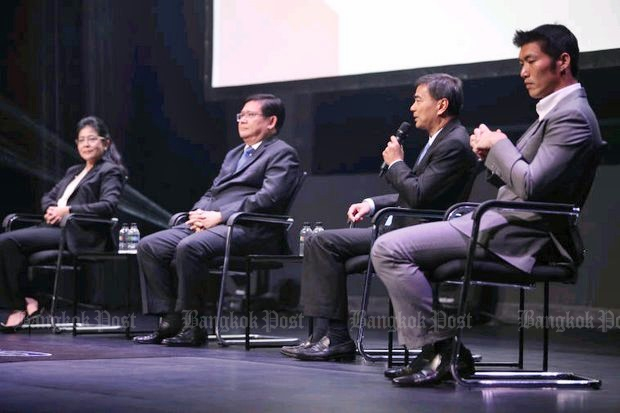
Four major political parties have voiced disagreement over a co-payment proposal while stressing the Universal Healthcare Coverage (UC) scheme would be improved to ensure efficiency in and equal access to healthcare.
The co-payments, or user-charges, which call for patients covered under the UC scheme to co-pay 10-20% to help relieve the government's financial burden, are controversial with critics arguing that patients may be discouraged from seeking treatment for illnesses with high medical costs.
Khunying Sudarat Keyuraphan, chief of the Pheu Thai Party's strategic committee, said the UC, also known as the gold card scheme, has proved its worth but improvements are necessary, especially in the area of budget management.
She said the costs of the scheme, which covers about 48 million people, are rising because it fails to promote health holistically or prevent illness. She suggested that people be given incentives to keep themselves healthy, such as tax privileges.
"The party will be gearing toward prevention and health promotion as well as wider public participation in the healthcare system," she told a seminar in Bangkok on Monday. It was attended by leading members of major parties.
Suvit Maesincee, deputy leader of the Palang Pracharath Party (PPRP), said the party does not see the benefits of user-charges and hopes to revamp procurement of medical supplies and drugs by state hospitals to push down costs.
He said the country's three healthcare funds should be streamlined to lower benefit gaps and ensure same standards, and the people should be allowed to seek medical services at any hospital.
Thailand has three types of medical welfare funds: the government's welfare fund for civil servants; the social security fund for employees in the private sector; and the UC fund that covers everyone else.
"What should be done is to reduce limitations so patients can use medical services at any hospital," he said.
Abhisit Vejjajiva, leader of the Democrat Party, said the party has no policy to introduce co-payments but that the financing of the gold-card healthcare scheme needs to be streamlined to ensure the National Health Security Office has sufficient funds.
According to Mr Abhisit, if anyone is to pay, it should not the public but those involved in creating products contributing to illnesses, or which endanger public health.
Thanathorn Juangroongruangkit, leader of the Future Forward Party, also ruled out co-payments, saying the country's annual budget of 2.33 trillion baht was sufficient to finance the UC scheme.
